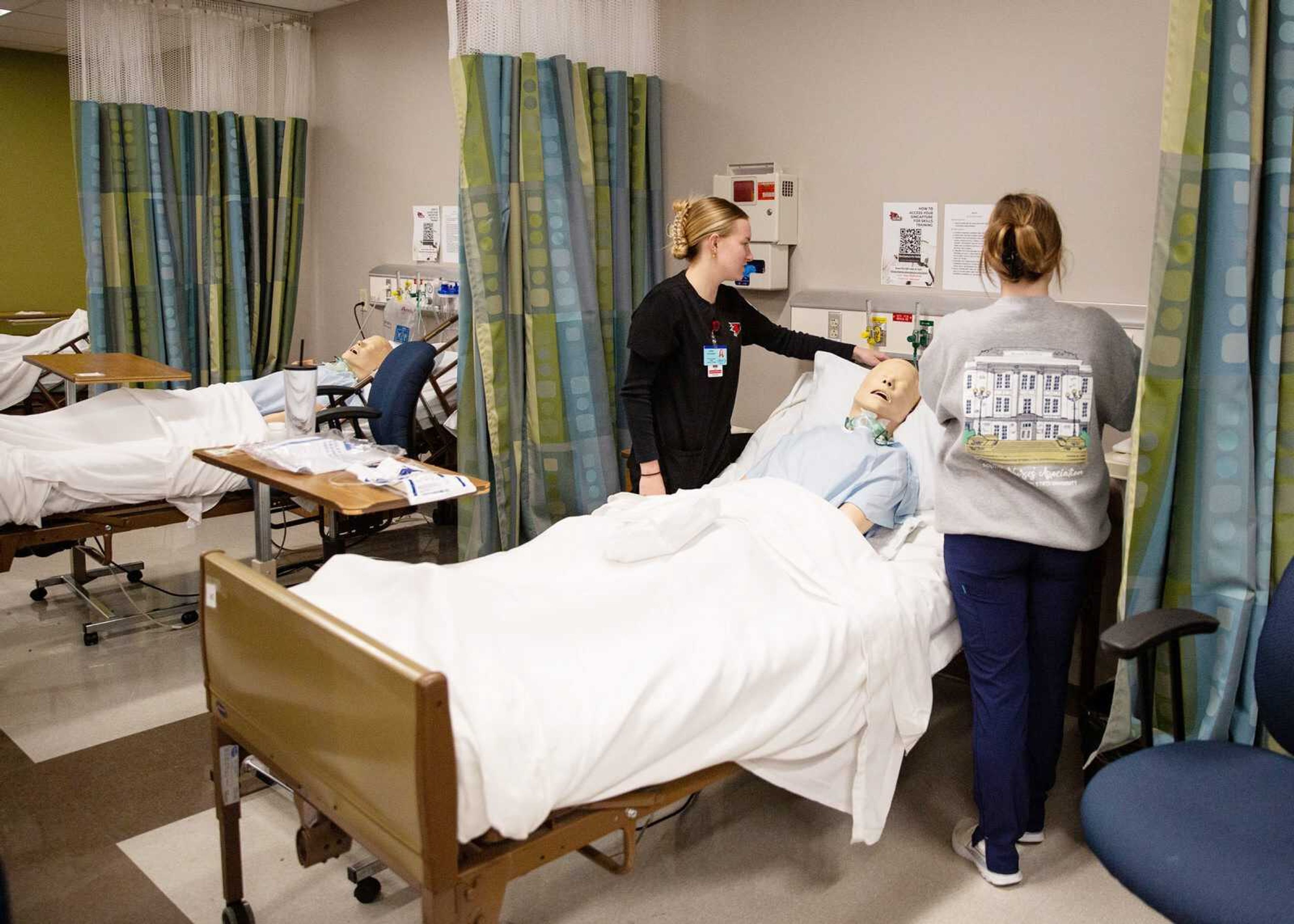Southeast utilizes technology to serve students, region
University's Tomorrow's Careers Today campaign innovates to train students for new economy At a time where there is a critical need for workers to fill the shortage in the cybersecurity workforce, the National Security Agency and the Department of Homeland Security have designated Southeast Missouri State University as a National Center of Academic Excellence in Cyber Defense Education...
University's Tomorrow's Careers Today campaign innovates to train students for new economy
At a time where there is a critical need for workers to fill the shortage in the cybersecurity workforce, the National Security Agency and the Department of Homeland Security have designated Southeast Missouri State University as a National Center of Academic Excellence in Cyber Defense Education.
"This recognition places Southeast's cybersecurity program in esteemed company as an elite program preparing graduates for top-tier positions among industry leaders needing a highly-qualified, cyber-savvy workforce," Southeast Missouri State University president Dr. Carlos Vargas said.
Southeast's undergraduate cybersecurity program was the first of its kind in Missouri when it launched in 2011. The program was designed to meet the workforce need of computer networks and systems that contain digital personal, financial, health and governmental records.
Today, the program has nearly 250 undergraduate and graduate students, as well as a cyber defense team that has won the Missouri Collegiate Cyber Defense Competition 10 times and regularly advances to the Midwest Regional Cyber Defense Competition. The Bachelor of Science in cybersecurity was one of the first in the nation to receive accreditation from the Accreditation Board for Engineering and Technology. Students have the option of going on to pursue a Master of Science in cybersecurity at SEMO to develop skills to further protect critical infrastructure.
Due to the success and demand of the cybersecurity program, SEMO created the Institute for Cybersecurity in 2019. The institute fosters business and industry outreach, aids in academic research coordination and funding, and connects individuals with industry-specific certificates and trainings.
The median salary for computer science degrees upon graduation, according to the Bureau of Labor Statistics, is $120,000. Southeast's cybersecurity graduates have gone on to work for AIG, Pricewaterhouse Coopers, Dell Secure Works, Enterprise, Express Scripts and Ameren, among others.
SEMO's cybersecurity program is just one example of how the university is innovating with technology to train students for the opportunities and challenges created by the rapid rate of automation and technological advancement. The Tomorrow's Careers Today initiative focuses on eight career paths the university has identified as high-demand careers in the new economy, including computer science and cybersecurity, education, health care, aviation, business and management, marketing and content creation, actuarial science, and engineering and technology. In each of these fields, the university utilizes technology to prepare students to meet the demands of today's workforce and be leaders in their fields.
For example, nursing students at Southeast Missouri State University are utilizing cutting-edge technology while training to care for patients throughout this region. Southeast has enhanced their simulation center's critical care room with state-of-the-art training. Now, through the use of high-fidelity simulated models, simulated ventilator-supported patients, simulation recording and pairing with monitors used in clinical settings, and virtual and augmented reality tools, nursing students learn how to care for critically-ill patients in a realistic setting on or off-site.
In addition, SEMO partners with regional hospitals to allow students to gain hands-on experience that benefits the region, making a real difference in the lives of patients. These innovations were made possible through Missouri Governor's Emergency Education Relief (GEER) Excels grants, which funded projects that allowed public institutions to continue to provide educational services to students, support the ongoing functionality of the institution and drive progress to the recovery from the economic impacts of the COVID-19 pandemic.
According to the Bureau of Labor Statistics, the national median salary for a registered nurse is $75,330; SEMO's nursing graduates have a 97% employment rate at graduation.
In addition to the integrative work in the cybersecurity and nursing programs, Southeast's College of Education, Health and Human Studies has again been named an Apple Distinguished School, a designation they have held since 2014. Certified with this distinction through 2025, the college received this honor for its integration of technology through the university's EDvolution© Center, a space on campus dedicated to innovation and emerging technology.
At the EDvolution© Center, students can experience the Virtual Reality Room, utilize the podcasting booth and collaborate with others using mediascapes, so they may use and share these and other technological tools with their students in their own classrooms. Through their work in assisting students in solving contextual problems in meaningful ways utilizing technology, the EDvolution© Center and the EDvolution© Model, a research-based model focusing on effective and appropriate technology integration, have received the American Association of Colleges Teacher Education 2022 Best Practice Award for the innovative use of technology.
"We are extremely proud to earn this prestigious distinction for an additional three years," said Dr. Joe Pujol, dean of the College of Education, Health and Human Studies. "The selection of Southeast as an Apple Distinguished School highlights our success as an innovator and a compelling learning environment that engages students and provides tangible evidence of academic achievement."
These are just a few ways students at Southeast Missouri State University are utilizing technology to prepare to be leaders in their fields. For more information about how you can be a part of today's innovation for tomorrow's workforce here in Southeast Missouri, visit semo.edu.
Connect with the Southeast Missourian Newsroom:
For corrections to this story or other insights for the editor, click here. To submit a letter to the editor, click here. To learn about the Southeast Missourian’s AI Policy, click here.










